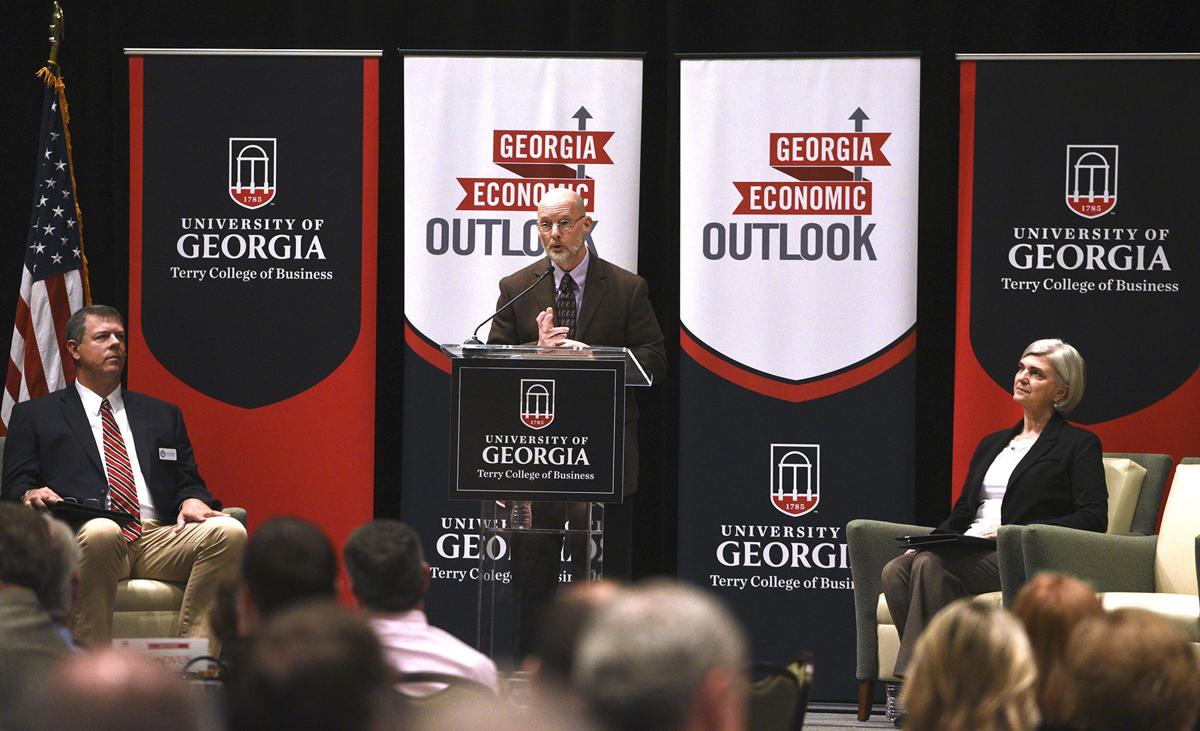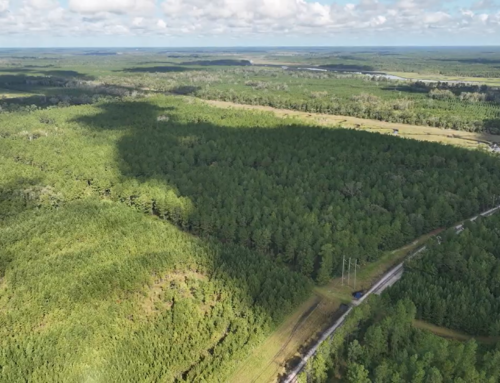This article first appeared in The Brunswick News by Lindsey Atkinson
Economic forecast very positive for Glynn, Georgia
Don Mathews was filled with good news at the annual economic outlook luncheon Thursday. The professor of economics and director of the Reg Murphy Center for Economic and Policy Studies at College of Coastal Georgia in Brunswick, took to the podium to deliver a highly optimistic forecast to attendees but continued to press officials to develop the waterfront in downtown Brunswick.
It was a cause he has championed for several years, noting that developing the city’s waterfront would be the best possible thing to fuel economic growth.
“I wish we could move a little faster on some of these projects in downtown Brunswick. I am still waiting for the new Mary Ross Waterfront Park. Now I know that Rome wasn’t built in a day. But the new park is still just all talk and plans,” he told the crowd gathered at the Jekyll Island Convention Center for the University of Georgia Terry College of Business’ Economic Outlook Luncheon. “I am itching to see some real action here. And I won’t even mention Mansfield Street, oops, sorry it just slipped out.”
Aside from that, however, the report was overwhelmingly positive. The highlights included a boost in employment, a resurrected housing market and growth across all business sectors.
“Finally we have good news in our local economy. Some very good news,” Mathews said.
The area has finally recovered fully from the Great Recession, he said, which started on the local level much earlier than it did nationally. It began in 2006 and ran through 2014, eight consecutive years of economic retrenchment, Mathews said.
“In 2015, we grew at a rate of a little over 2 percent. We grew at a rate of about 7 percent in 2016. What the numbers suggest to me is that, in 2017, we were growing at least at that rate until Irma hit,” he said. “But even with Irma, 2017 was a real good year for us. You can really see how strong the year was in the labor market.”
The labor market encompasses the entire Brunswick Metro Statistical Area (MSA), the six county region which includes Glynn, McIntosh, Camden, Charlton, Brantley and Wayne. Mathews said employment grew by almost 2,000 jobs, which is an impressive feat for the area.
“The labor force of our six counties is 90,000 so 2,000 jobs is a big deal for us,” he said. “The overall unemployment rate for the six counties is 4.5 percent, down from 5.6 percent at this time last year.”
In addition, the jobs have spread relatively evenly across sectors like construction, real estate, finances and retail, offering balanced growth. Tourism continued to be a major player in the economy, bringing in roughly $1 billion annually, Mathews said. There was an 8 percent increase for the 2016-2017 fiscal year in hospitality, even with Hurricane Matthew, he added.
“If Matthew didn’t come, I believe we would have seen 10 percent growth. I will be surprised if we see that continue this (fiscal) year with Irma. But even with Irma, we are doing pretty good,” he said.
Retail trade reportedly returned to levels not seen since 2005 and residential construction was another area of impressive growth.
“For the Brunswick MSA, which includes Brantley, McIntosh and Glynn counties, building permits for residential construction are up 11 percent and the value is up 7.5 percent. Home prices are up 13 percent, according to the Federal Housing Finance Agency,” he said. “So this is the best we’ve seen in construction in a good long time. What I am hoping to see is some spill over to the mainland in this. St. Simons is going crazy but I hope to see that spill over to the mainland too.”
There were only a few areas Mathews viewed as being slightly negative. One of those was the Port of Brunswick which did not see the large gains it has typically seen in recent years.
“We always had glimmers of hope from hospitality-tourism and the port. We had two consecutive years where the port was a little off not bad years but just down a little bit,” Mathews said. “The real bad news is the agri-bulk facility there got really hammered by Irma. So once they get rid of the product they will dismantle it, which is a shame because that was a really neat operation.”
There was another area that caused concern. In addition to wanting to see downtown develop faster, Mathews noted he was worried about insurance rates in the post-Irma era that can negatively impact small businesses as well as home owners.
“I don’t know what is scarier … the hurricane or the insurance premiums,” he said.
In addition to Mathews’ report, the luncheon also featured remarks from Beata Kochat, senior research analyst at the Selig Center at the University of Georgia. She told the group the state would see more positive economic growth than the nation, outperforming last year. It will grow by 2 percent as opposed to the 1.1 percent gain expected for the nation.
Personal incomes in the state are also expected to jump by 5.8 percent. The state, especially Glynn County, will see a large boost in new residents coming for the abundance of jobs. Logistics, transportation and technology are all expected to thrive, as is the film industry. Georgia is the number one location globally for film, outperforming California and the United Kingdom.
While Kochat noted that the new, fast growth posed a risk of recession, she did not expect that to surface until 2019 or 2020.
“The outlook for Georgia is surprisingly good,” she said. “We expect a very prosperous year for the state.”






